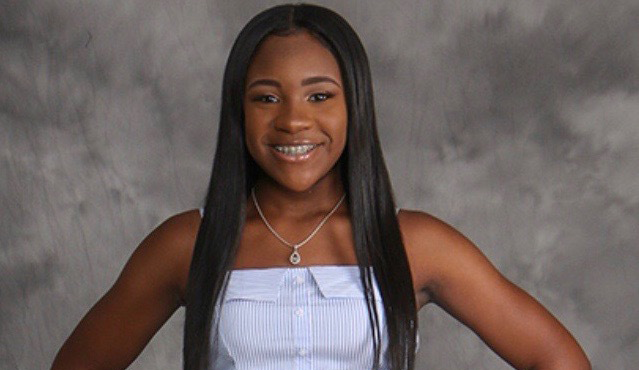When the COVID-19 pandemic hit at the end of her freshman year, Zakia Tookes found herself juggling coursework, community service, figuring out new online learning technologies, and a sudden move back home to Atlanta from Howard University.
But that didn’t stop Tookes from initiating another big project: organizing a live online panel to welcome and orient the incoming freshman class. Howard University had canceled spring freshman orientation events, and Tookes heard from incoming students that they were feeling unprepared without it. So she and a couple of friends decided to put together a panel of their own.
“When I was a senior in high school, I had a lot of questions about navigating the campus, about my major, and other things about school,” says Tookes. “That’s why we chose to do this panel.”
It turned out to be a big success. Tookes and her friends posted the invitation on social media and in the online group for the incoming class, and around 100 attendees showed up to the video conference on Zoom. Incoming freshmen submitted questions ahead of time and during the panel. At the end, attendees asked Tookes and her friends if they’d be willing to do it again.
For Tookes, who is majoring in film and television and minoring in theater arts, connecting with her peers and mentoring those coming up behind her is one of the most important parts of college life. “I’m an in-person type of person,” she says.
Being under quarantine turned her favorite parts of college — including study groups and helping friends run for student council positions — into more of a challenge, but it didn’t slow her down.
Staying involved while staying apart
Classroom learning is only one part of what Tookes is involved with at Howard. Before the pandemic closed down the campus, she had been training to be a mentor for girls in elementary school, middle school, and high school. She continued taking the training remotely, but she missed interacting in person.
“Having the actual practice makes us stronger mentors,” she says.
She had also been helping a close friend, a candidate for a student council position, post fliers and meet with peers in person about their platform.
“Once we had to go online,” says Tookes, “it was a lot more challenging. If you don’t have a strong social media following it’s hard to get your platform out, but that doesn’t mean your platform isn’t strong.”
She would like to have seen the university find more ways to make those virtual connections apart from online coursework so she could take part in key experiences. She suggests, for example, hosting a candidate debate over a Zoom call.
“The thing is just being creative, like how we created the panel,” says Tookes.
Learning from a distance
The social aspect of being on campus supported Tookes academically, as well. “Having to get up and go to class plays a huge role in how I retain information,” she says. “Online, it’s challenging for me to be attentive, and to get motivated and stay focused.”
When classes all went online, Howard University offered students the option to take their classes as pass/fail. Tookes chose that option, in part because she’d taken an online course in high school and found it to be much harder for her to learn than when she’s actually in the same room as the teacher.
A few of her professors worked to make the transition to online learning more interactive. Her Spanish professor, who only speaks Spanish in class in order to immerse students in the language, focused on oral exams during group calls. Her stage management professor required students to comment on each other’s posts in order to encourage discussion.
But it wasn’t the same as having a lively conversation in class. “There’s a really huge difference from having a teacher stand in front of you and having to watch videos online,” says Tookes.
Choosing the pass/fail option reduced Tookes’s stress around maintaining her GPA, although in the end she found she did better than she’d expected in all her courses.
Supporting the whole student
While most of the conversation around how college students are dealing with the COVID-19 pandemic focuses on academics, Tookes wants colleges and universities to take a more holistic look at how students are doing.
“Student situations are all extremely different once you go home,” she says. “When you’re on campus the school can provide you resources to make sure you’re protected. But when you’re at home, there’s a lot going on that the school can’t control.”
However, even when everyone is back on campus again, Tookes thinks retaining some of the online tools used during the pandemic can enhance student experiences. “I would definitely want to keep the online orientation panel,” Tookes says. She suggests recording future panels and uploading them to be a growing resource for incoming students.
Even considering that she’s had some successes in connecting online, Tookes is looking forward to returning to Howard, hopefully in the fall. “I’m pretty excited to be back on campus with everybody,” she says.
Resources for faculty
|


